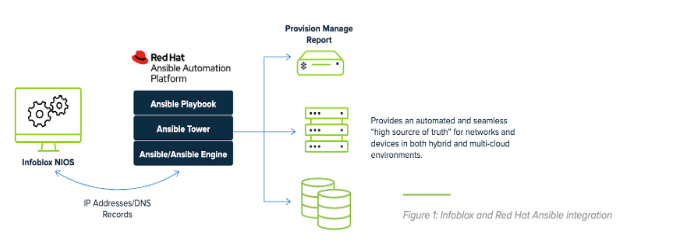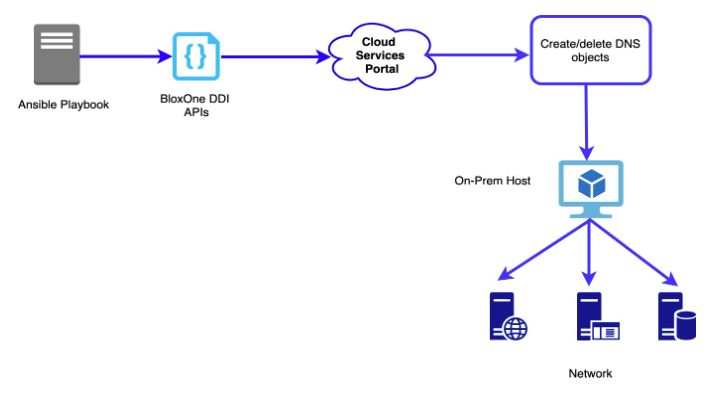Author: Mrigank Gupta
If we go by the dictionary meaning, an ansible is a category of fictional devices or technology capable of near-instantaneous or faster-than-light communication. It can send and receive messages to and from a corresponding device over any distance or obstacle whatsoever with no delay, even between star systems. As a name for such a device, the word “ansible” first appeared in a 1966 novel by Ursula K. Le Guin. Since that time, the term has been broadly used in the works of numerous science fiction authors across a variety of settings and continuities.
That original meaning is the inspiration behind Ansible—a suite of software tools that enables infrastructure as code. The suite is open-source and includes software provisioning, configuration management and application deployment functionality. Originally written by Michael DeHaan and acquired by Red Hat in 2015, Ansible is designed to configure both Unix-like systems and Microsoft Windows.
It is used for configuration management, application deployment, intra-service orchestration and provisioning. It is lightweight and straightforward to deploy, manage and use. The Ansible platform makes it easy for administrators and developers to automate many tasks, from applying updates to machines on the network to directly managing network devices. There are many significant benefits to automating the workflows and management processes in a data center: agility, efficiency, accuracy and effectiveness are just four. Organizations that are stepping through their cloud journey, redefining application delivery, or adopting DevOps methodologies will profit from the speed and reliability of data center automation.

Ansible-Infoblox Integration
The integration of Ansible with Infoblox enhances the benefits of advanced network automation. The Red Hat Ansible Automation Platform extends beyond traditional tools for server and software installations to encompass the entirety of IT infrastructure, including network resources. The Infoblox NIOS Collection for Ansible Automation Platform is a package of modules and plugins that allows managing Infoblox Network Identity Operating System (NIOS) objects and functions through APIs leveraging Ansible playbooks. The combined Infoblox/Red Hat solution enables network professionals to overcome the burden of maintaining a static registry of devices and gain a centralized and highly efficient way to manage DNS, DHCP, and IPAM (DDI) automation of VMs and containerized workloads deployed across multiple platforms.
The Infoblox NIOS Collection for Ansible provides 24 modules and 4 plugins included with Ansible 2.11. It enables networking teams to leverage Ansible NIOS modules and plugins to automate Infoblox core network services, including IPAM, DNS, and inventory tracking for workloads deployed across multiple platforms. It frees network administrators from frequent repetitive requests or tasks with high error rates, including IP address assignments, DNS record creation and cleanup of everything once a resource is no longer needed.
The nios_modules collection provides modules and plugins for managing the networks, IP addresses, and DNS records in NIOS. This collection is hosted on Ansible Galaxy under infoblox.nios_modules.
The Infoblox NIOS Collection for Ansible is founded on NIOS publishing DDI information to Ansible Tower using Ansible Inventory and Lookup plug-ins. DDI information is then presented as variables to an Ansible Playbook: a YAML-based text file that performs tasks to automate managed systems found in Inventory. Playbooks allow an administrator to configure an entire environment by leveraging what is known as a module that executes on Linux and Windows systems, networks and cloud instances. The Infoblox NIOS Collection for Ansible specifically lets an Ansible Playbook automate the provisioning of the network service infrastructure. Its features include:
- Providing the next available IP address from Infoblox DDI
- Assigning an IP address to a new VM or host
- Creating a host record in Infoblox DDI
- Add/Remove Network Views
- DNS Views
- Networks
- DNS Zones
- Host Records
- Lookup plug-in for next available IP address
- Dynamic inventory script to provide Infoblox data to Ansible inventory
- Management and configuration of Infoblox DNS Traffic Control (DTC) server- records, pools, and load balanced domain name objects

Figure 2: Configuration of Ansible-Infoblox integration
Customer Use Cases
With the Infoblox NIOS Collection for Ansible, organizations can seamlessly automate and centralize all aspects of IP address provisioning and reliable DHCP server management with DNS through an integrated platform enabling organizations to confidently handle the most challenging IPAM, DNS, and DHCP requirements in every type of network environment, data center and hybrid cloud environment. NIOS integration empowers networking teams to:
- Provision systems in minutes, instead of days, with automated IP address provisioning for cloud infrastructure and services by enabling automatic IP- allocation/ deallocation and DNS records creation/deletion as applications or services are spun up and shut down.
- Leverage the next available IP address capability to assign the right IP addresses to the resources being spun up
- Simplify troubleshooting and reduce downtime with real-time visibility into virtualized and physical network infrastructure.
- Leverage the lookup plug-in to query for NIOS objects. Configure and manage NIOS objects, such as networks, network views, zones, etc., directly from Ansible via playbooks.
- Manage movement between VM and container clusters easily with synchronization of critical DNS, DHCP and IP address services.
- Import your network node inventory from Infoblox NIOS using Infoblox dynamic inventory plug-in.
- Leverage Ansible to automate the configuration and management of the DNS Traffic Control functionality offered by Infoblox.
Benefits
The Infoblox NIOS Collection for Ansible provides single-point comprehensive automation of VM and containerized workload deployments across multiple platforms. By integrating Infoblox DDI capabilities with Ansible automation, organizations can:
- Reduce Time to Deployment:
Scripting the provisioning of IP addresses and DNS records in an Ansible Playbook reduces the elapsed time to bring a networked device and its attendant capabilities online. Rather than rely on human intervention and manual processes, this becomes a “push button” function within a Playbook. - Use Network Resources Efficiently:
Infoblox DDI provisions and recovers IP addresses and DNS records for networked devices, such as servers. Infoblox DNS Traffic Control (DTC) integrates GSLB functionality with core DDI network services. By automating these tasks, the use of IP addresses and DNS records is made efficient, while bringing devices onto a network is less exposed to address conflicts. - Improve Network Reliability:
Automation reduces the probability of random human error in network service provisioning and management. Fewer errors lead directly to greater network reliability and indirectly to better user experiences with applications running on that network. - Leverage Existing Skills and Investments:
Ansible is used by thousands of organizations to manage data center resources. DDI network and DTC load balancing services can now be seamlessly automated using Ansible’s well-understood scripting language rather than introducing new tools that require new skills. - Single Pane of Glass:
By consolidating network service management within an Ansible playbook, the data center or network administrator has one less system to learn, use and maintain
Conclusion
Environments are becoming extremely dynamic as the virtualization of hardware becomes more prevalent, placing tremendous strain on traditional IP address management (IPAM) and Dynamic Host Configuration Protocol (DHCP) systems. Organizations depend heavily on tools to automate or orchestrate tasks as much as possible, where new applications or servers can be deployed with a single request. The Infoblox NIOS Collection for Ansible provides a centralized and automated way to manage DNS, DHCP and IPAM (DDI) across multiple platforms, enabling a customizable, centralized and granular view of all IPAM, DNS, and DHCP data. Gain a single-point comprehensive perspective of the entire network combined with network security and control, thus allowing seamless management of multiple networks and resources.









